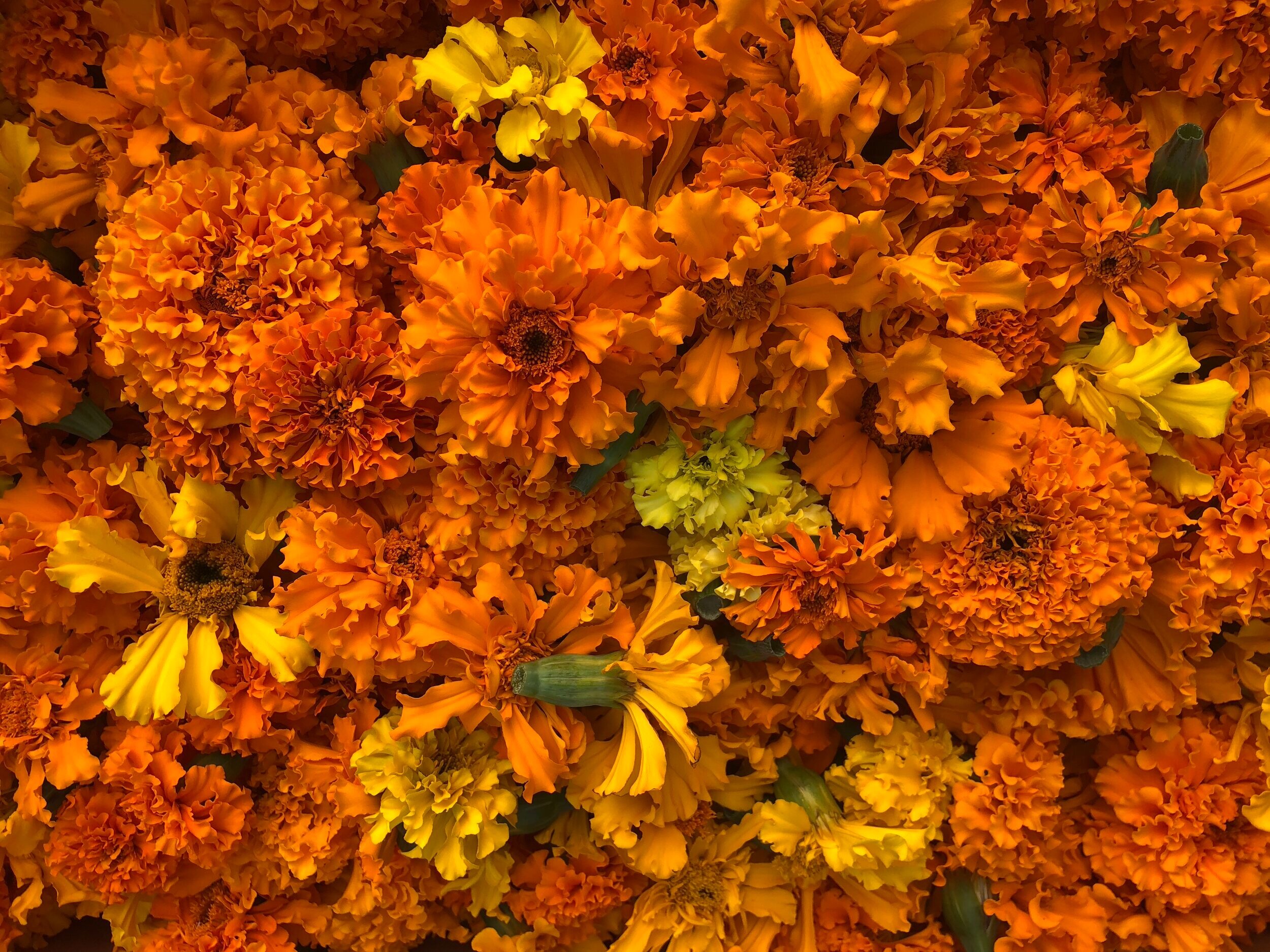
WHO WE ARE
Adrienne & Doug met in 2016 during a year-long organic farmer training & certification program at Michigan State University. There the two first-generation farmers acquired the skills necessary to successfully run an angribusiness, while also learning how to love each other.
Near the end of their time at MSU, Doug & Adrienne were provided the opportunity to rent an existing small farm in Central Lake. When the couple couldn’t agree upon a farm name leading up to their business plan deadline, they went with the only other name they had decided on together: Buckwheat - what they planned to call their future farm dog.
Since the launch of Buckwheat’s Market Garden in the spring of 2017, thousands of pounds of organically-grown food has been produced on 1/3 of an acre, then sold & distributed throughout Northern Michigan.
2020 was the first growing season on newly purchased land, not far from the old farm. Buckwheat’s 2.0 sits on 17 acres of previously grazed pasture and hardwood forest; the growing footprint remains roughly the same. The land not under cultivation is the perfect amount of space to establish pollinator sanctuaries, and for the farm’s namesake to run & catch frisbees.
WHAT WE VALUE
Rooted in our business is an intensified production model that maximizes yield in a small-scale growing space, while maintaining the unique ecological and biological diversity of Northern Michigan. We prioritize soil health management and water conservation because we believe our farm must be held accountable for the impact it has on Earth’s ecosystem.
Our produce is grown from seed to harvest with the same standards and practices set for USDA organic certification. While we are not yet certified, we strive to go beyond the guidelines set in place to do so.
OUR GROWING PRACTICES
SOIL HEALTH
Cover cropping & crop rotation to replenish soil nutrients (Buckwheat happens to be our favorite cover crop to use!)
Drip irrigation for water conservation and minimizing soil erosion
Regular additions of compost and minimal tilling
INTEGRATED PEST & DISEASE MANAGEMENT
Row coverings to exclude insects
Cover cropping & crop pruning to minimize disease pressure
Only if absolutely necessary, Buckwheat’s will use Organic Materials Review Institute (OMRI) approved insecticides or fungicides. These products ensure the safety & resilience of soil microbes, beneficial insects and our customers.
PLANT DIVERSITY
Pollinator field planting to attract beneficial insects
The sowing of organic, non-GMO & saved heirloom seeds for naturally vigorous and bio-regionally adapted plants



